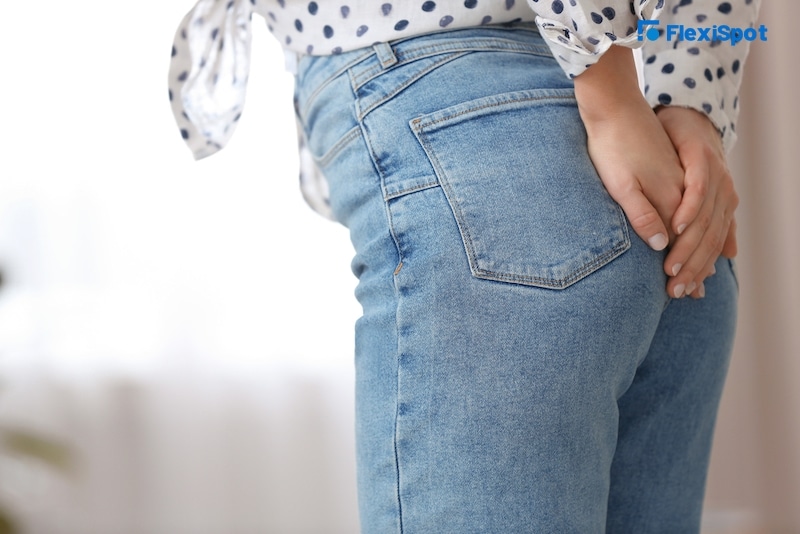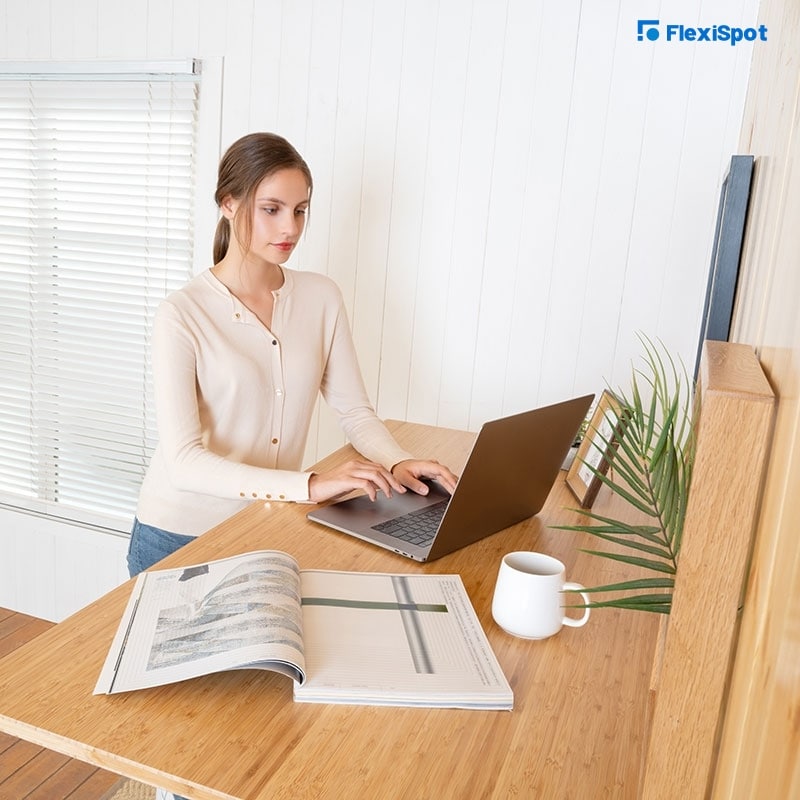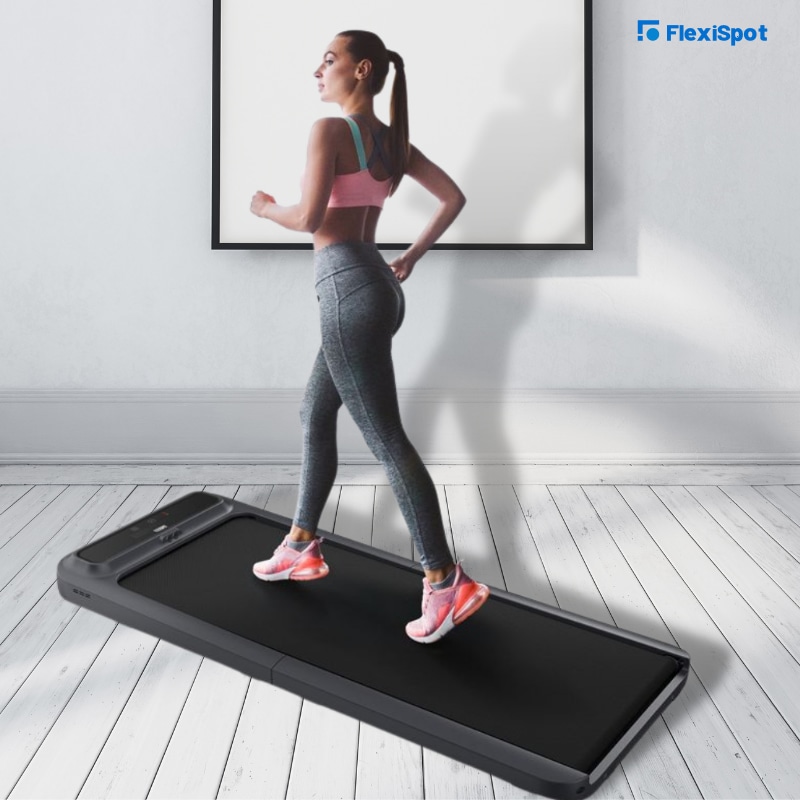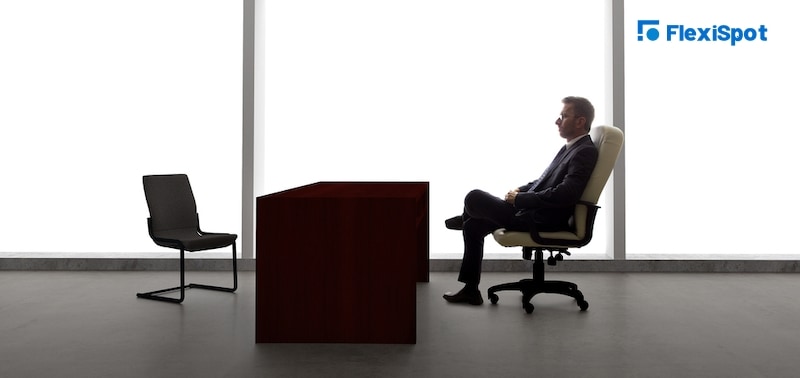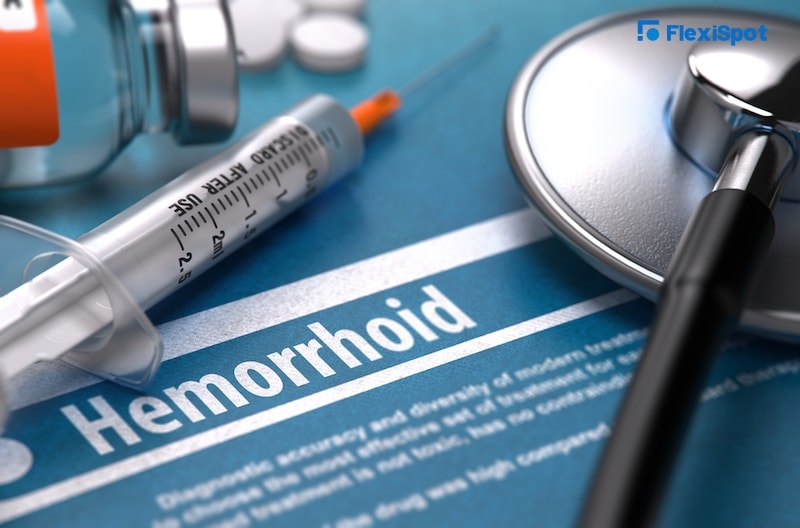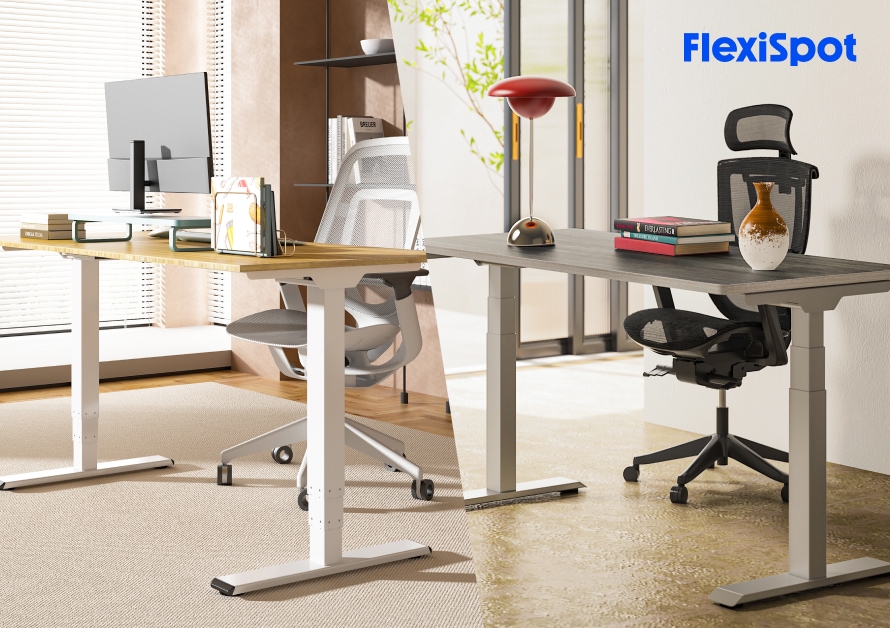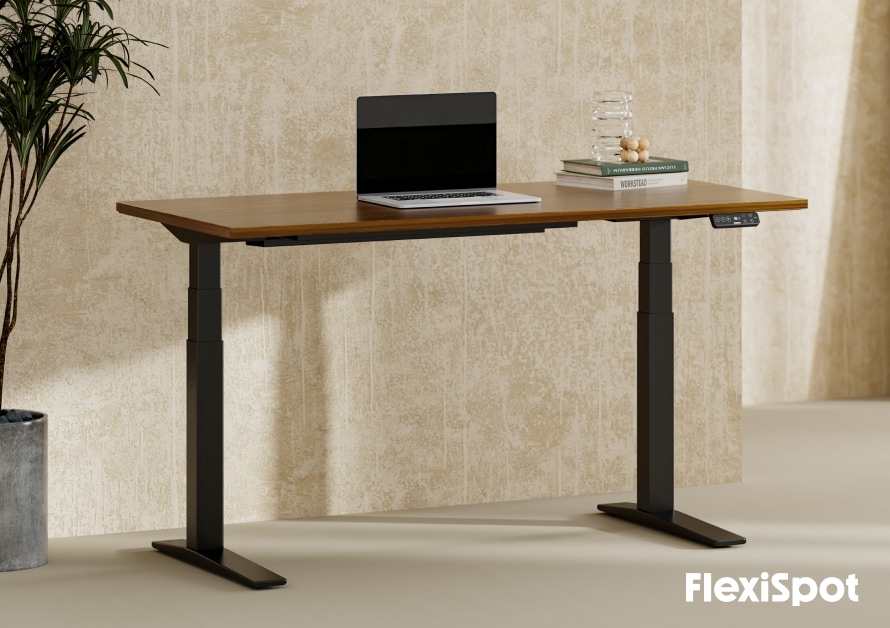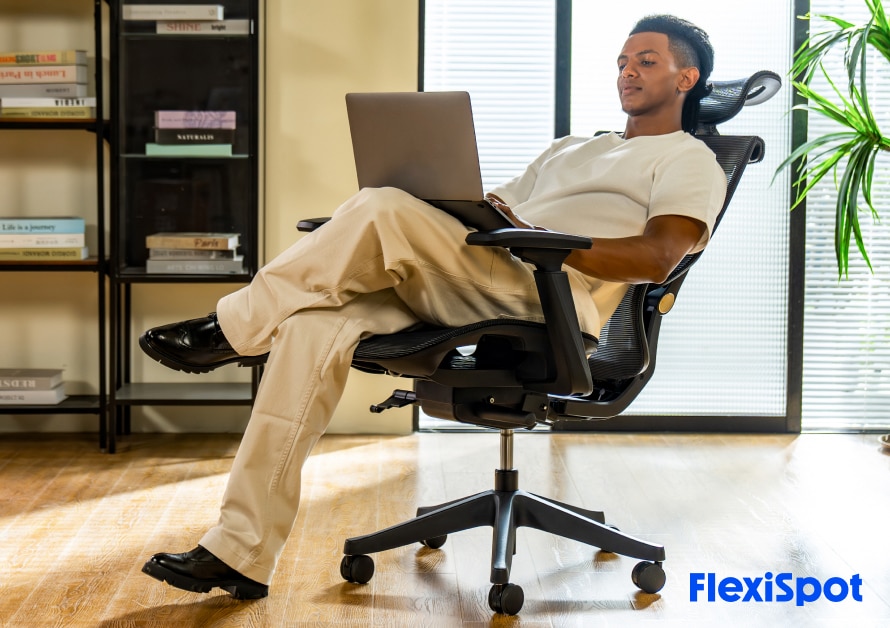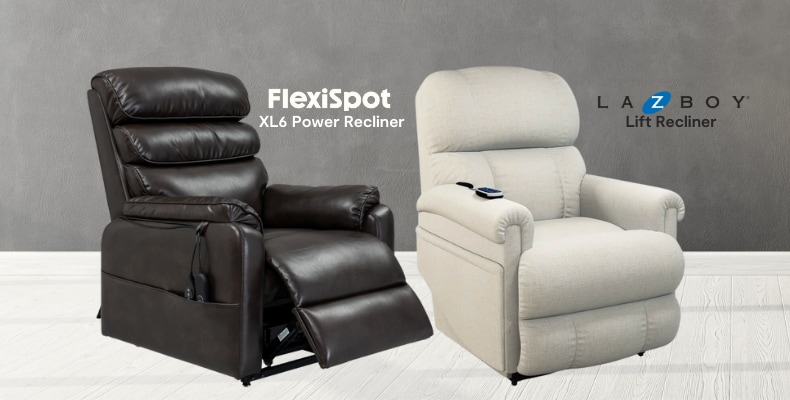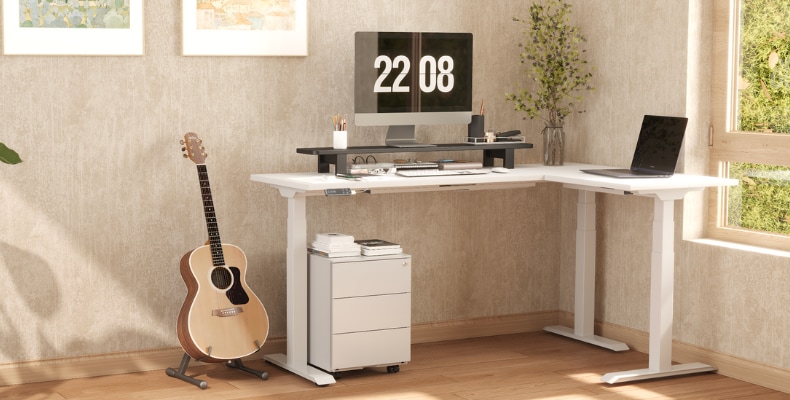Hemorrhoids are swollen veins around the outer and inners side of the anus. It can yield symptoms from minimum inconvenience or discomfort to excruciate soreness and significant psychosocial implications. Anyone can get hemorrhoids, but they are more frequent as people age. By the age of fifty, almost half of the women and men have them, and they are rarely dangerous even though they are painful sometimes. One of the things that can make hemorrhoids worse is sitting for very long work periods. Several people have office jobs that require them to sit for most of the day. It is even worse for people aged 40-55 and older who work in the office since hemorrhoids are frequent with age, and these are their peak ages.
The two different types of hemorrhoids are external and internal, which vary by their symptoms and locations. There is swelling and blood due to weakened rectal veins around the anus, which leads to external hemorrhoids. On the other hand, internal is caused by swelling of the rectal veins deep in the anal cushions and rectum. Hemorrhoids grow when pressure from the lower rectum stretches the veins. The pressure sometimes stems from activities such as heavy lifting, but primarily, the tension arises from straining during constipation and prolonged sitting.
What are the reasons for hemorrhoids?
1. Prolonged periods of sitting time.
As implied before, specific jobs increase the risk of hemorrhoids, requiring prolonged sitting periods and heavy lifting. Some of these jobs positions are construction workers, secretaries, receptionists, truck drivers, and office clerks. If you work in any of these sectors, then worry not because the article will teach you how to minimize the risk of having hemorrhoids. Sitting causes hemorrhoids because the pressure applied leads to the spreading out of the gluteal muscles. The small rectum and anal veins stretch out and lose elasticity. When the veins which have become fragile swell up with blood, you get hemorrhoids.
Intense pressure caused by prolonged sitting results in new hemorrhoids and worsens existing ones. However, you should note that not all sitting brings about the same effect. Sitting on a hard chair creates more pressure than sitting on a soft chair, especially during office hours. Also, your work may necessitate you to sit for long hours, but sitting a lot also happens when you lead a sedentary lifestyle. Research shows that older adults have a range of abilities since they are a diverse group. However, physical activity levels decline with age; hence, adults aged 40 and above are more likely to live a prolonged sedentary life than younger people. Sitting for long hours and its resulting lack of activity increases the risk of having hemorrhoids.
2. Constipation
If you are over 40 years old, you already know that it becomes common to have problems with physical processes. Issues can be worsened or caused by medication, inadequate fiber diet, endocrine disorders, low physical activity levels, and even the type of work one does. Older people are more likely to develop constipation-related problems compared to younger people. Hence, another reason for hemorrhoids is chronic constipation. Difficulty in defecating results in straining and pressure on the veins in the rectal area, enlarging the veins.
Also, spending much time in the toilet puts extreme pressure on your anus and rectum. While in the washroom, your rectum gets lower than the rest of your buttocks; hence gravity pulls down the blood pools in the veins. If you are already suffering from constipation, you increase this pressure further.
3. Aging
Despite young people also suffering from hemorrhoids, aging with time is a reason for hemorrhoids. You need to realize that hemorrhoids are prevalent among adults aged 45 years and above.
4. Pregnancy
During pregnancy, the tissues in a woman’s rectum get weaker, and the hormones end up causing the veins to swell and relax. Hemorrhoids can happen to up to thirty-five percent of pregnant women.
5. Genetics
There are some instances where people inherit the likelihood of developing hemorrhoids. If your family has a history of hemorrhoids, it is more likely that you can develop hemorrhoids. It is, however, nothing shameful.
How can hemorrhoids be prevented?
1. Invest in a standing desk
Does your job cause you hemorrhoids due to too much sitting? How about you invest in a standing desk. Unless your job needs you to sit on your chair the entire time, standing desks can be a better option since they reduce sitting time during working hours. The difference between standing and typical office desks is that they are height adjustable, so you can choose sitting or standing whenever you want; hence, they can reduce the risk of hemorrhoids and improve productivity. Sitting in the same position for long periods can apply much pressure, resulting in circulation problems. If you are feeling classy, a sit-stand desk is what you need.
2. Take breaks, go for walks and do more exercises.
By taking a break, you will clear your mind and get some exercises to help your health. Doing this helps alleviate issues from sitting for long hours in the same position and less standing. Routines help prevent hemorrhoids and lower the risk of flare-ups. They help stimulate bowel functions, tone the area around the rectum and increase blood flow. When bowel functions are improved, they help in avoiding constipation.
3. Eat foods rich in fiber.
One significant way of preventing constipation is drinking plenty of water throughout your day and eating a fiber-rich diet, such as vegetables, whole grains, fruits, and beans. By eating food rich in fiber, you can have regular bowel movements, which will reduce the risk of hemorrhoids. It is also vital to take a break at the first sign of wanting a bowel movement. You need not avoid it until your next break since it can cause pressure on the vessels.
4. Use ergonomic chairs
Being 40-55 years old, you understand that sitting positions are necessary for your health. Ergonomic chairs can cost more than a regular office chair, but they are worth it. While working in your office, consider investing in ergonomic chairs because they can alleviate pressure on your rectum and benefit your back. If you don’t want to invest in ergonomics, use a donut-shaped pillow at the front of your desk to prevent hemorrhoids. They allow you to sit comfortably and take pressure away from your anus.
How can you relieve the pain?
Simple measures can alleviate symptoms and pain in several cases, while hemorrhoids heal independently. However, surgery and medication might be necessary in some cases. The following treatments can help you relieve hemorrhoid pain:
Topical ointments and creams- if you can’t afford to miss work, you can buy over-the-counter creams, which will help you reduce discomfort, itching, and swelling.
Cold compresses and ice packs- because hemorrhoids are swollen veins that bulge from your skin, applying ice packs to your affected area can reduce swelling and help ease the pain and make your day easier.
Have a sitz bath- it entails sitting in a bathtub that contains shallow and warm water. Doing this a few times every day, especially before going to work, will help relieve pain.
Analgesics- you can buy painkillers like ibuprofen, aspirin, and acetaminophen to help alleviate hemorrhoid pain.
If you don't want the ways mentioned above, you should consider buying medication to relieve your pain. Drugs used to treat hemorrhoids come in different forms, such as ointments, suppositories, and pads. You can quickly get them over the counter.
Lidocaine- acts as a local anesthetic. Researchers suggest that suppositories or creams that combine lidocaine with tribensodine can help improve hemorrhoid pain symptoms and itching.
Witch hazel- if you want temporary pain relief because you have less free time before going to work, consider buying astringents like witch hazel that will provide you comfort until you get a permanent cure.
If the pain persists, you can relieve it by seeking further treatment like rubber band ligation, which entails placing an elastic rubber band on the hemorrhoid base to block the blood supply. This process done by a professional will make hemorrhoids fall off or shrink, thus relieving the pain and curing hemorrhoids. You can also consider surgical options such as prolapsed internal hemorrhoids or removal of external hemorrhoids, a procedure called hemorrhoidectomy. You can go home on the same day of the surgery and work in your office.
If you are an office worker fighting a long-lost battle with hemorrhoids, seek medical attention and avoid sitting for long periods to prevent yourself from hemorrhoids.
Further reading
Sun, Z., & Migaly, J. (2016). Review of hemorrhoid disease: presentation and management. Clinics in colon and rectal surgery, 29(01), 022-029.
Tresca, A. (2021). Hemorrhoids: Signs, symptoms, and complications. Verywell health. https://www.verywellhealth.com/hemorrhoids-signs-symptoms-and-complications-4160936
Lawrence, A., McLaren, E. R., & McCormick, S. P. (2021). External Hemorrhoid (Nursing). In StatPearls [Internet]. StatPearls Publishing


